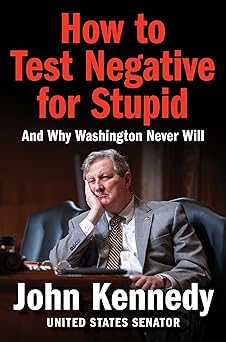
Audible Premium Plus is Amazon’s flagship subscription tier designed for audiobook enthusiasts who want more than just streaming access. It blends the convenience of a large audiobook library with exclusive ownership benefits, premium content, and member-only perks. For people who love listening to books during commutes, workouts, or downtime, Audible Premium Plus provides a versatile and high-quality experience that goes beyond standard subscriptions.
Membership Overview
At its core, Audible Premium Plus combines two features: unlimited access to the Audible Plus Catalog and one monthly credit that can be exchanged for any title in the store, regardless of price. This means subscribers can stream thousands of titles as part of the Plus Catalog and also permanently own at least one audiobook per month. The model blends the flexibility of a streaming service with the permanence of digital ownership.
Subscribers also receive discounts on additional audiobook purchases, exclusive sales, and early access to new releases. This hybrid model appeals to both casual listeners and avid audiobook collectors who value owning titles rather than just renting them.
The Audible Plus Catalog
Audible Premium Plus includes full access to the Audible Plus Catalog, which features thousands of audiobooks, podcasts, and Audible Originals. These can be streamed or downloaded as long as the membership remains active. The selection covers a broad range of genres including fiction, non-fiction, self-development, mystery, romance, and more.
While the catalog is not as extensive as the entire Audible store, it offers plenty of quality content, including many Audible Originals that cannot be found anywhere else. For most listeners, the Plus Catalog alone provides enough variety for everyday use.
Credits and Ownership
One of the standout features of Premium Plus is the monthly credit system. Each credit can be exchanged for any audiobook, no matter its list price. Once redeemed, that audiobook becomes part of the listener’s permanent library and can be accessed even after canceling the subscription.
Unused credits roll over for several months, giving users flexibility in when they choose to spend them. This is especially beneficial for listeners who prefer to accumulate credits and then use them during major releases or sales.
Audio Quality and Listening Experience
Audible’s app is available on nearly every platform—smartphones, tablets, computers, and smart speakers. Playback quality is consistently excellent, with clear narration and stable streaming. The app supports variable playback speed, bookmarking, sleep timers, and chapter navigation, making it easy to tailor the experience.
The ability to switch between devices seamlessly using Amazon’s cloud synchronization is another strong advantage. Listeners can start a book on their phone, continue on an Echo device, and pick up later on a tablet without losing their place.
Original Content and Exclusive Series
Audible Premium Plus members enjoy access to a variety of exclusive productions, including full-cast dramatizations, celebrity-narrated stories, and limited series created specifically for Audible. These often feel like a blend between traditional audiobooks and cinematic audio experiences.
The platform’s investment in original storytelling has elevated the listening experience beyond simple narration. Genres like true crime, history, and self-help have seen particularly high-quality productions.
Pricing and Value
Audible Premium Plus is priced higher than the basic Audible Plus plan, but it justifies the cost with its credit system and ownership perks. The ability to permanently keep audiobooks purchased with credits is a key differentiator compared to other streaming platforms that remove access when subscriptions end.
Frequent listeners who complete one or more audiobooks each month will likely find the subscription cost worthwhile. The discounts on additional titles and access to sales can also make it a cost-effective choice over time.
Pros and Cons
The major strengths of Audible Premium Plus include ownership of audiobooks, a robust library of exclusive content, and seamless device integration. The sound quality and app interface are consistently polished and user-friendly.
However, the service may feel expensive for those who only listen occasionally. Additionally, while the Plus Catalog is extensive, it doesn’t include every audiobook in the store, which may limit the selection for certain niche interests.
Who It’s Best For
Audible Premium Plus is ideal for people who listen to audiobooks regularly, prefer to own their titles, and value access to exclusive productions. It suits commuters, multitaskers, and anyone who prefers listening over reading. Those who enjoy collecting a personal audiobook library will find the ownership aspect especially rewarding.
Casual listeners, on the other hand, might find the lower-cost Audible Plus plan sufficient since it still offers a vast selection without the monthly credit system.
Final Verdict
Audible Premium Plus stands as one of the most complete audiobook services available today. It merges streaming convenience with true ownership, backed by Amazon’s ecosystem and quality production standards. With its powerful combination of original content, flexibility, and premium features, it offers significant value for dedicated audiobook fans.
For listeners who want the best experience in audio storytelling and don’t mind paying for quality and permanence, Audible Premium Plus remains the top-tier choice in the audiobook world.






